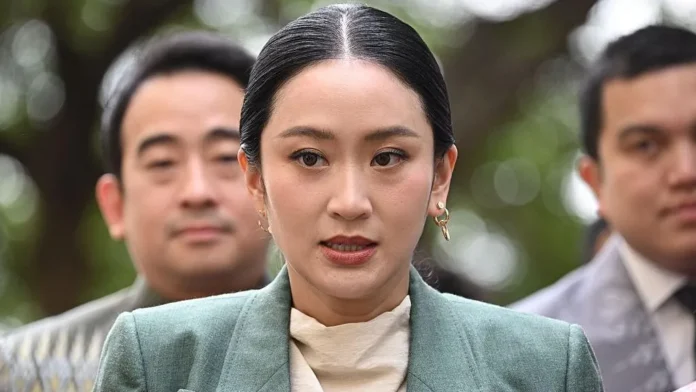Bangkok, Thailand — Thailand’s Constitutional Court has suspended Prime Minister Paetongtarn Shinawatra, escalating political tensions as the powerful Shinawatra dynasty faces yet another leadership crisis.
The suspension comes as the court considers a petition seeking Paetongtarn’s dismissal over a leaked phone call with former Cambodian leader Hun Sen, in which she referred to him as “uncle” and criticized a Thai military commander. The leaked conversation ignited a political firestorm, with critics accusing her of undermining national security and appeasing a foreign power.
In a 7-2 decision, the court ruled to suspend the 38-year-old premier while she prepares her defense. She has 15 days to respond to the allegations. In the interim, Thailand’s deputy prime minister will serve as acting leader, while Paetongtarn retains her new position as Culture Minister, part of a cabinet reshuffle endorsed just hours before her suspension.
The case could make Paetongtarn the third member of the influential Shinawatra family to lose power before completing a term. Her father, Thaksin Shinawatra, and aunt, Yingluck Shinawatra, were both ousted from office, marking two decades of political upheaval tied to the family’s dominance.
The court’s decision coincides with Thaksin facing fresh legal troubles. The former prime minister, recently returned from 15 years in exile, went on trial Tuesday for alleged insults to the monarchy over a 2015 interview with a South Korean newspaper — one of the highest-profile lese majeste cases in years.
Paetongtarn’s phone call, reportedly addressing a long-standing border dispute with Cambodia, sparked outrage among conservative lawmakers and the public. Critics say her remarks reflected weakness toward Hun Sen and disloyalty toward Thailand’s military establishment.
In an emotional public statement Tuesday, she apologized again but defended her actions:
“I had no intent to do it for my own interest. I only thought about how to avoid chaos, avoid fighting, and to avoid loss of lives,” she said.
Nonetheless, her popularity has nosedived, with recent polls placing her approval rating at 9.2%, down from over 30% in March.
Her ruling coalition is also on shaky ground after a key conservative ally defected two weeks ago, leaving her administration vulnerable.
The Constitutional Court’s role in Thailand’s political landscape has drawn sharp criticism from analysts who accuse the judiciary of systematically dismantling opposition-aligned governments. Since 2006, the court has dissolved 34 political parties, including the reformist Move Forward Party, which won the most seats in the 2023 election but was barred from forming a government.
“This has become a pattern in Thai politics… part of the political culture, which is not what a true democratic process should be,” observed Titipol Phakdeewanich, a political science lecturer at Ubon Ratchathani University.
If dismissed, Paetongtarn would be the second prime minister from the Pheu Thai Party ousted in less than a year, following the removal of her predecessor Srettha Thavisin over a cabinet appointment scandal.
By Were Kelly



















